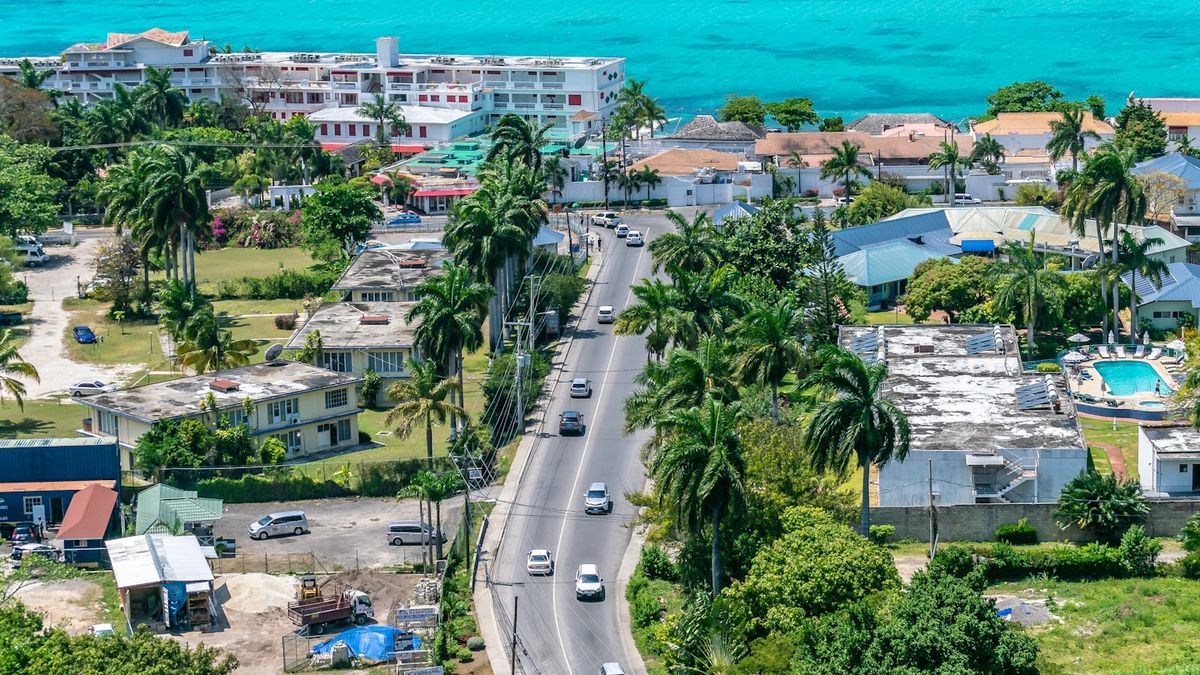
Ever wondered what makes Jamaica so unique? This Caribbean island is more than just beautiful beaches and reggae music. Jamaica boasts a rich history, vibrant culture, and some surprising facts that might just blow your mind. Did you know Jamaica was the first Caribbean nation to gain independence in 1962? Or that it’s home to the fastest man in the world, Usain Bolt? From its lush Blue Mountains, where some of the world’s best coffee is grown, to its colorful festivals, Jamaica offers a blend of natural beauty and cultural richness. Ready to learn more? Let’s dive into 25 fascinating facts about this incredible island nation!
Jamaica's Unique Geography
Jamaica, an island nation in the Caribbean, boasts a rich tapestry of landscapes, from stunning beaches to lush mountains. Here are some fascinating geographical facts about Jamaica.
- Jamaica is the third-largest island in the Caribbean, covering an area of 4,240 square miles.
- The Blue Mountains, located in the eastern part of the island, are the longest mountain range in Jamaica and home to the world-famous Blue Mountain Coffee.
- Jamaica has over 120 rivers, with the Black River being the longest at 53.4 miles.
- The island is surrounded by the Caribbean Sea, which provides crystal-clear waters perfect for snorkeling and diving.
- Jamaica's coastline stretches for 635 miles, offering numerous beautiful beaches like Negril's Seven Mile Beach and Montego Bay's Doctor's Cave Beach.
Rich Cultural Heritage
Jamaica's culture is a vibrant mix of influences from its African, European, and indigenous Taino roots. This blend has created a unique and dynamic cultural landscape.
- Reggae music, which originated in Jamaica, was declared a UNESCO Intangible Cultural Heritage of Humanity in 2018.
- The island is the birthplace of Bob Marley, one of the most influential musicians in the history of reggae.
- Jamaica celebrates its independence from the United Kingdom on August 6th each year, a national holiday filled with festivities.
- The Maroons, descendants of escaped African slaves, have preserved their unique culture and traditions in communities like Accompong and Moore Town.
- Jamaican Patois, an English-based creole language, is widely spoken alongside standard English.
Flora and Fauna
Jamaica's diverse ecosystems support a wide variety of plant and animal species, many of which are endemic to the island.
- The island is home to over 3,000 species of flowering plants, with 27% being endemic.
- The Jamaican Iguana, once thought extinct, was rediscovered in 1990 and is now a symbol of conservation efforts on the island.
- Jamaica boasts 28 species of birds that are found nowhere else in the world, including the Jamaican Tody and the Red-billed Streamertail, the national bird.
- The island's lush rainforests are home to the Jamaican Boa, the largest snake species in Jamaica.
- The Cockpit Country, a unique karst landscape, is a biodiversity hotspot with many rare and endemic species.
Historical Significance
Jamaica's history is rich with events and figures that have shaped the island's identity and legacy.
- Christopher Columbus first landed in Jamaica in 1494 during his second voyage to the New World.
- Port Royal, once known as the "wickedest city on earth," was a notorious pirate haven in the 17th century before being destroyed by an earthquake in 1692.
- The island was a major center for sugar production and the transatlantic slave trade during the colonial period.
- Marcus Garvey, a prominent black nationalist and leader of the Pan-African movement, was born in Jamaica in 1887.
- The island gained full independence from the United Kingdom on August 6, 1962, becoming a member of the Commonwealth of Nations.
Sports and Achievements
Jamaica has made significant contributions to the world of sports, particularly in athletics and cricket.
- Jamaica has produced some of the world's fastest sprinters, including Usain Bolt, who holds the world records for the 100m and 200m sprints.
- The island's national bobsled team gained international fame after their debut at the 1988 Winter Olympics, inspiring the movie "Cool Runnings."
- Jamaica has won a total of 87 medals at the Summer Olympics, with the majority coming from track and field events.
- The West Indies cricket team, which includes players from Jamaica, has won the ICC Cricket World Cup twice, in 1975 and 1979.
- Shelly-Ann Fraser-Pryce, another Jamaican sprinting legend, has won multiple Olympic and World Championship gold medals, solidifying Jamaica's reputation in athletics.
Jamaica's Rich Tapestry
Jamaica's vibrant culture, stunning landscapes, and rich history make it a unique gem in the Caribbean. From Reggae music to Blue Mountain Coffee, the island offers a blend of experiences that captivate visitors and locals alike. The Dunn's River Falls and Seven Mile Beach are just a couple of the natural wonders that draw tourists from around the globe.
The island's diverse wildlife, including the Jamaican Iguana and Doctor Bird, adds to its allure. Not to mention, the delicious cuisine like jerk chicken and ackee and saltfish provides a taste of its rich culinary heritage.
Whether you're exploring the bustling streets of Kingston or relaxing in the serene Port Antonio, Jamaica's charm is undeniable. So, pack your bags and get ready to experience the magic of this incredible island.
Was this page helpful?
Our commitment to delivering trustworthy and engaging content is at the heart of what we do. Each fact on our site is contributed by real users like you, bringing a wealth of diverse insights and information. To ensure the highest standards of accuracy and reliability, our dedicated editors meticulously review each submission. This process guarantees that the facts we share are not only fascinating but also credible. Trust in our commitment to quality and authenticity as you explore and learn with us.
